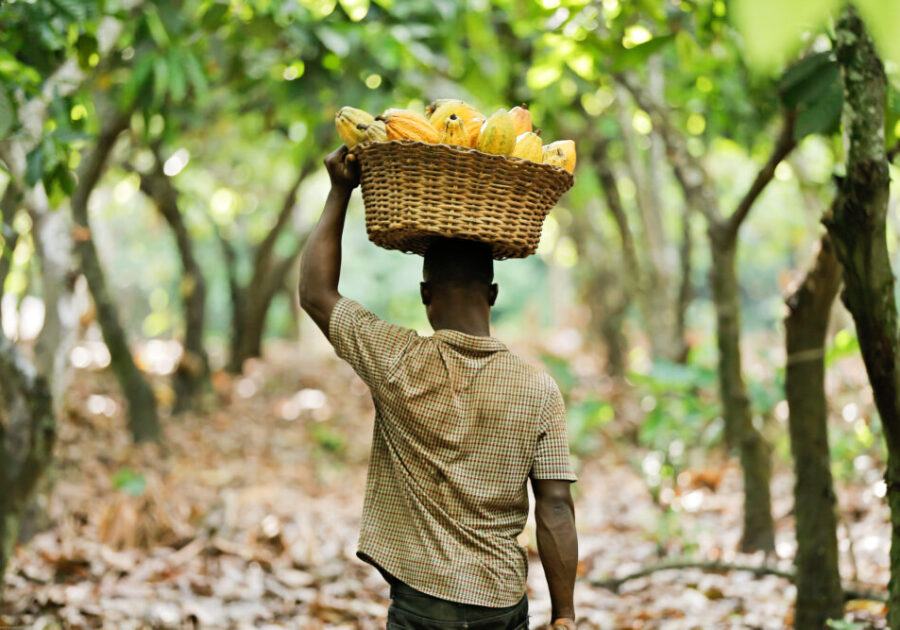Rainforest Alliance reveals extended standards, as it prepares for the World Confectionery Conference

Rainforest Alliance works with a number of cocoa farming operations in Ghana. Pic: Rainforest Alliance
Plans for a major enhancement of certification standards has been unveiled by non profit organisation, Rainforest Alliance, as it seeks to support farmers in a range of sectors, including cocoa production, writes Neill Barston.
The group, which will take its place at our World Confectionery Conference this week in our Q&A on sustainability and the future of the industry, has just released its new Regenerative Agriculture Standard.
As the organisation noted, its latest standards, which initially will focus on the coffee trade, but will be rolled-out during 2026 to cover markets including cocoa, target enabling farmers to build more resilience in their income streams, as well as aiming to restore ecosystems across tropical landscapes that are critical to crop production.
According to Rainforest Alliance, from early next year, certified regenerative products will bear a distinct seal, signifying to consumers that these products come from farms and companies that are committed to enriching the land and the lives of those who live off it.
As the organisation noted, the timing of its additional certification drive comes amid ongoing significant pressure on many agricultural sectors including cocoa, which continues to face what has been described by global organisations including Fairtrade as undergoing crisis conditions during the past two years.
Notably, as Confectionery Production has previously highlighted, key cocoa growing territories of Ivory Coast and Ghana have been hit with consistent challenges including crop disease such as Swollen Shoot, as well as adverse weather conditions that have affected yields. The region has also been targeted by illegal gold mining operations that have further placed pressure on land traditionally used for cocoa crops
Santiago Gowland, CEO of the Rainforest Alliance, summed-up the scheme’s initial plans, centred on the coffee market.
He said: “Markets need to move beyond a ‘do no harm’ mindset to one that repairs and restores. Now is the time to transition to a new model of agriculture—one where every cup of coffee gives back more than it takes from the land and the people who care for it. After years of research and collaboration with farmers and companies, we are proud to introduce a Regenerative Agriculture Certification to help drive this shift”
As the organisation noted, regenerative agriculture offers a climate-smart approach to farming, is emerging as a promising solution to help restore nature’s essential functions while improving livelihoods. It cited studies that have proved farming practices that take these methods into consideration can improve income levels by 20-30% for farmers.
The Rainforest Alliance has integrated these principles into its Regenerative Agriculture Standard, providing farmers with a clear, science-based certification pathway for measuring progress and outcomes across five impact areas including soil health and fertility, climate resilience, biodiversity, water stewardship, and livelihoods.
In terms of the organisation’s aspirations, it stated that those companies that choose to engage with Rainforest Alliance certified product ranges offer a key means of support to supply chains, as well as being able to make more credible claims regarding sustainability. This is the case as the organisation’s initiative is linked to specific project data that can be verified, leaving consumers with greater confidence over the transparency of sourcing claims – which has in recent years come into sharp focus amid broader sector claims of some brands attempting to delve into ‘greenwashing’ shoppers with bold assertions that are not backed-up with tangible, meaningful results and data.
As Rainforest Alliance added, the Regenerative Agriculture Standard is already being implemented across coffee farms in Brazil, Costa Rica, Mexico, and Nicaragua, before its wider implementation across other sectors including for the cocoa industry.

